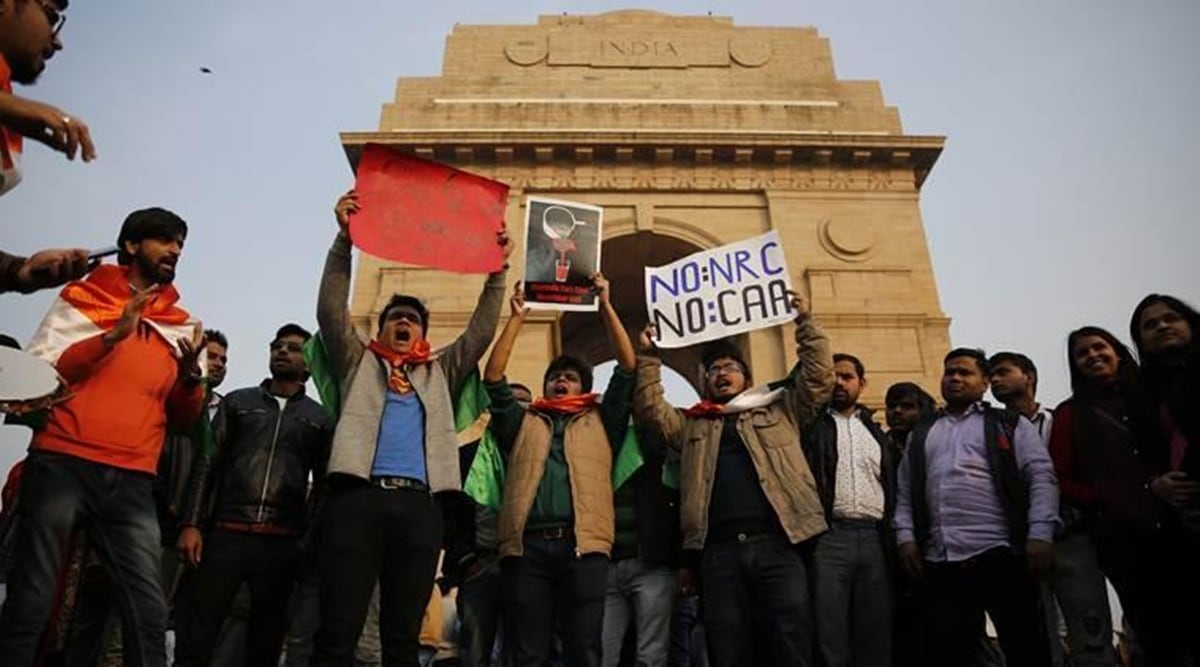The Union Home Ministry said this in an affidavit filed in the top court opposing an intervention application filed by the Indian Union Muslim League (IUML), challenging the May 28 notification.
The Union government on Monday told the Supreme Court that its notification dated May 28, 2021, “seeks to merely delegate” to “the local authorities in particular cases”, its power to grant Indian citizenship to members of the minority community in Pakistan, Bangladesh and Afghanistan — Hindus, Sikhs, Buddhists, Jains, Parsis and Christians, has been done on “numerous occasions previously” and “has no relation whatsoever with the CAA [Citizenship (Amendment) Act, 2019]”.
The Union Home Ministry said this in an affidavit filed in the top court opposing an intervention application filed by the Indian Union Muslim League (IUML), challenging the May 28 notification.
IUML filed the application in its petition challenging the CAA. Opposing this, the government pointed out that the two are different and “it is inconceivable” that the intervention application can be filed in the original writ petition against the citizenship law.
The May 28 notification, MHA pointed out, “does not provide for any relaxations to the foreigners and applies only to foreigners who have entered the country legally”. The central Government, it said, only used its authority under Section 16 of The Citizenship Act, 1955 – which confers on it powers to delegate some of its powers to grant citizenship to such officer or authority as may be specified — and delegated its powers to grant citizenship by Registration or Naturalisation to District Collectors. It is merely an administrative delegation of power without any specific classification or relaxation, said the affidavit.
The Ministry said Section 18 of The Citizenship Act, 1955, confers on the Central Government powers to make appropriate rules to carry out the provisions of the Act.
In 2004, the government notified the Citizenship (Amendment) Rules, 2004, which delegated the power to grant citizenship by Registration under Section 5, in respect of Pakistani nationals of minority Hindu community, to four district collectors in Gujarat and to the state’s home secretary, if such Pakistani nationals lived in other districts. The said notification also enabled collectors of Barmer and Jaisalmer districts to register as citizens of India “Pak nationals of minority Hindu community” displaced due to the 1965 and 1971 wars.
In 2016, the Centre delegated its powers to grant citizenship by registration or naturalisation to collectors of 16 districts and home secretaries of 7 states in respect of migrants from six minority communities of Afghanistan, Pakistan and Bangladesh for two years, the affidavit said, adding this was done to fast track citizenship applications of this category of foreigners.
In 2018, this delegation of power was extended until further orders.
The government added that in the meantime, it received several representations to delegate its power to grant citizenship in respect of legal migrants to some more districts/state where sizeable population of such migrants has been residing.
Accordingly, by a notification dated May 28, the government further delegated its power to grant citizenship in such cases to the collectors of 13 more districts — Morbi, Rajkot, Patan and Vadodara in Gujarat; Jalore, Udaipur, Pali, Barmer and Sirohi in Rajasthan; Durg and Balodabazar in Chhattisgarh, Faridabad in Haryana; and Jalandhar in Punjab and to home secretaries of two more States — Haryana and Punjab.
“Therefore, now, District Collectors of 29 districts and Home Secretaries of 9 States will exercise powers of Central Government to grant citizenship to the specified category of foreigners. The Central Government has also retained its right to simultaneously use these powers any time, it added.
The notification, said the government, “is merely a process of decentralisation of decision making aimed at speedy disposal of the citizenship applications of such foreigners as the decision will now be taken at the District or State level itself after examining each case” and “no relaxation whatsoever has been made in respect of the eligibility criteria between different foreign nationals which are laid down in the Citizenship Act, 1955 and rules made thereunder” and “hence, the question of violation of Article 14 in making the certain classification does not arise”.
Source: Read Full Article


